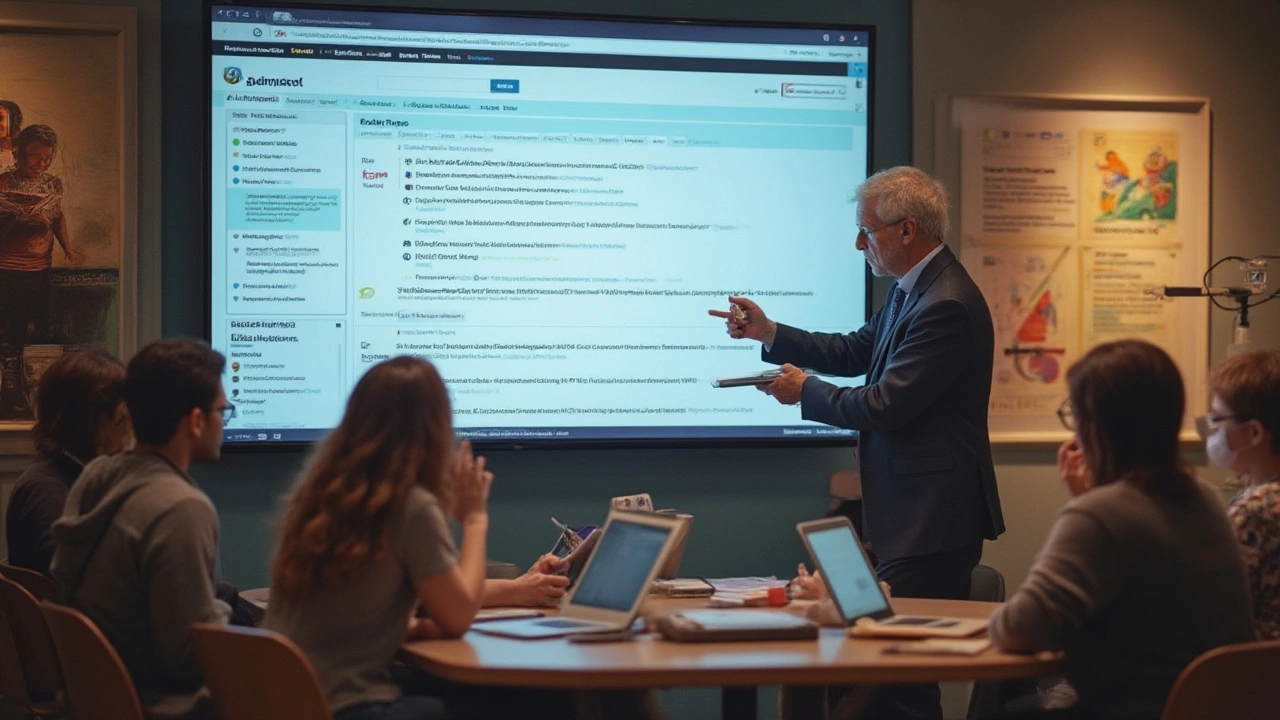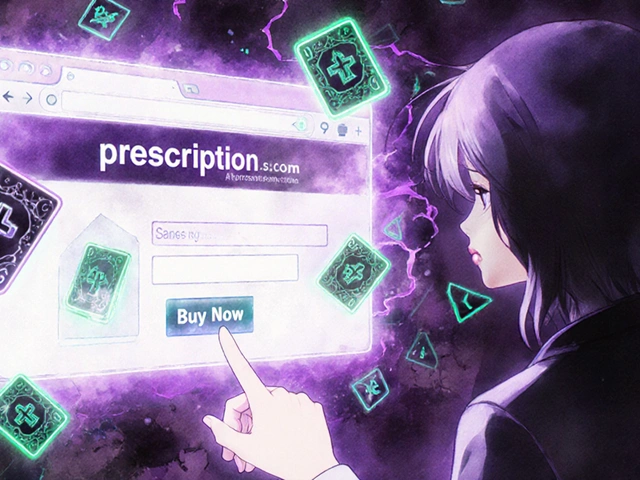Raise your hand if a strange new health tip popped up on your feed this week. Maybe the post claimed sea moss cures everything, or some mysterious supplement could replace sleep. Health advice travels fast online, zigzagging through TikTok, Reddit, and Facebook groups. But what’s real? Some of these tips sound so convincing, you almost want to try them before dinner. Fact-checking medical claims isn’t just for doctors or nerds with thick glasses — it’s for anyone who wants to stay healthy (and not fall for snake oil in 2025). Fact-check medical advice isn’t about doubting everything; it’s about knowing how to trust, verify, and decide what works for you.
Why Fact-Checking Medical Advice Matters in 2025
Back in 2022, the World Health Organization reported that false health claims spread as fast as COVID-19 did. Three years later, AI-generated misinformation is sharper, faster, and can knock your browser sideways before you can say "mismatch results." In April 2025, a study by Stanford University found that a whopping 38% of Gen Z and millennials had followed unverified TikTok health advice in the past six months. Of those, 17% reported negative health effects, from minor side effects to skipping legitimate medication.
Algorithms push eye-catching headlines. Sometimes, even your favorite influencers don't realize they’re sharing inaccurate info. Platforms do their best, but bots are clever, and humans are quick to trust. We’re bombarded by medical headlines—miracle cures for chronic pain, "easy" fixes for insomnia, or warnings about daily habits that are supposedly ruining our bodies. If we act on this kind of advice without pausing to check, we risk our health, our money, and even our peace of mind.
The thing is, even popular websites like WebMD can sometimes miss the mark or lag behind the latest research. And when the stakes are high—think prescription changes, major symptoms, or new experimental therapies—relying on “my cousin’s friend” or a viral post isn’t just risky, it could be downright dangerous. Why not dodge the drama and learn to spot the solid info?
Getting Started: What is PubMed, and Why Is It Useful?
Here’s a secret used by medical students and journalists: PubMed. If you’ve never heard of it, PubMed is a giant, free database run by the National Institutes of Health. It lists millions of summaries (called abstracts) from real, peer-reviewed medical studies. Think of it as the biggest scientific library in the world, and you don’t need credentials to search it.
Unlike blogs or news sites that simplify things for the average reader, PubMed’s info comes straight from researchers. You can check the original studies behind health claims, see what actual doctors and scientists found, and know if there’s real evidence backing a tip. If someone online says “new research shows coffee reverses liver damage,” you can search PubMed directly to see if any real studies (not Facebook memes) confirm it.
The challenge: PubMed can look intimidating if you’re new. It’s packed with science-y words, and not every article is open access. But don’t worry, you don’t need to be a PhD in biology to navigate it. A simple search and a few tricks can help you spot if a claim is pure gold or just clickbait dressed up in a lab coat.
Here’s one surprising fact: A 2024 Pew survey found that 79% of Americans trust peer-reviewed studies as their top source for medical info, beating social media and even family doctors in some age groups. That doesn’t mean you should ditch your GP, but knowing how to search PubMed puts power in your hands. It’s like carrying a filter for truth in your pocket.
Step-By-Step: How to Cross-Reference Health Claims Using PubMed
Let’s get to the nitty-gritty. Next time you see a sketchy health claim, try this step-by-step guide to confirm or debunk it. Honestly, it feels a bit like being a health detective, minus the magnifying glass.
- Break down the claim. Don’t search the whole sentence. Pull out the key subject and the surprising twist you're checking. If the post says, “Ginger cures migraines in 60 minutes,” search for “ginger migraine treatment.”
- Head to PubMed. The official site is pubmed.ncbi.nlm.nih.gov — totally free, no login needed. Type your search terms into the main bar.
- Skim the list for new and relevant studies. Pay attention to the publication dates. Medical science changes fast. Studies from 1992 might not matter in 2025.
- Read the study titles and abstracts. The title tells you what was actually studied. If the abstract is available, it gives a quick summary—what they tested, how many people participated, the results, and any warnings.
- Check for studies with lots of participants and strong results. Case reports or animal models don’t carry as much weight as large randomized trials. Look for words like “systematic review” or “meta-analysis” for the gold standard.
- Glance at the conclusions. Sometimes studies find “no significant difference.” That’s science talk for “didn’t work.”
- Watch for conflicts of interest. If the researchers got money from the supplement company whose product they tested, take results with a grain of salt.
- Compare several studies. If three solid studies find different things, doctors might not agree, either. Science is a process, not religion.
- If you’re still unsure, try adding the word “review” to your search (“ginger migraine review”). Reviews combine results across many studies for a bigger picture.
Here’s a quick cheat sheet of what matters most in a study:
| Cue | What To Look For |
|---|---|
| Sample Size | Bigger is usually better. Hundreds or thousands, not just 20 people. |
| Randomized | Did they randomly assign people to different treatments? Reduces weird bias. |
| Control Group | Was there a comparison baseline? (Placebo or standard treatment.) |
| Peer Review | Published in a real journal with feedback from other experts. |
| Recent | Last 5 years is ideal, unless you’re checking a classic idea. |
Let’s try an example: Suppose you read that "drinking beet juice lowers blood pressure fast." Type “beetroot juice blood pressure” into PubMed. You’d see a bunch of results, including a 2023 systematic review showing that, yes, beet juice really seems to lower blood pressure in adults—though mostly for short periods and not as much as prescription meds. That’s solid info you can trust. No guessing or relying on strangers with selfie sticks.

How to Read (and Not Overthink) a PubMed Abstract
Abstracts seem intimidating if you don’t hang out in labs for fun. But the good news? You can get the main idea in about 30 seconds if you know where to look and what to ignore. Here’s a breakdown of an average PubMed abstract and what it really means for you:
- Background: This is the “why” of the study. Why did they bother looking into beet juice or meditation or wearable trackers?
- Methods: How did they test the idea? Look for info about participants (age, gender), how many were included, and what they measured.
- Results: This is where the action is. What happened after they tested it? Was there a real effect, or not much to see?
- Conclusions: What do the researchers think this all means? Are they cautious, or super excited?
Watch for "statistically significant." It means the result probably didn’t happen by luck. But also look for "clinically significant"—sometimes a finding is real but not big enough to change your daily life.
Then, don’t sweat the words you don’t recognize. Nobody remembers every jargon term from high school biology. Circle back and look up the strange phrases, or check a plain-English summary if the article has one.
If there’s a paywall on a study you desperately want, try searching the title in Google Scholar, or email the lead author (they’re often happy to share a PDF). If all else fails, look for “review articles” or check solid health websites that cite the study in question.
When PubMed Isn’t Enough: Other Reliable Sources and Pro Tips
Sometimes, even PubMed can fail you—maybe the results are mixed, or the answers you want are buried behind confusing stats. Luckily, you don’t have to stay stuck or jump back to random blogs. There are smart, trustworthy alternatives to WebMD if you want peer-reviewed, up-to-date health info without slogging through science lingo. For example, check out this great resource for alternatives to WebMD, which explains doctor-trusted sites where you get the facts, not just recycled summaries.
If you want to dig deeper, some proven food-for-thought:
- Trusted medical societies (like the American Heart Association or National Institutes of Health) rarely put out hype—they base info on big reviews and gold-standard trials.
- If you hit confusing or contradictory findings, ask a real doctor or a pharmacist. They read studies all the time and can break down what matters for your personal case.
- Watch for hot new TikTok claims about supplements, trendy diets, or hacks. Big claims without linked, recent studies deserve a double-check, always.
- Take social media posts with a grain of salt—especially stories that tell you to ditch your regular prescription in favor of “nature’s cure.”
- Protect your data and privacy when joining online health forums—or just lurk instead of sharing details.
One more tip: Set up Google Alerts for subjects you care about. That way, you’ll get updates when new studies publish on migraine drugs, fasting, or anything important to your health. It’s like getting science news delivered, minus the hype.
Shaping Your Own Health Filter: Confidence After the Cross-Check
Getting confident with checking medical info online is like flexing a new muscle. It feels awkward at first, but with every sketchy cure you check on PubMed—and every social media myth you bust—it gets easier. The more you practice, the less likely you are to get tripped up by wild promises or viral fads that float into your DMs.
Think of your healthy skepticism as self-care. Is it annoying to research instead of just clicking "share"? Maybe, but nobody regrets being a little extra careful with their health or wallet. Plus, you get the bragging rights for helping your friends dodge the next viral supplement scam or hyped-up internet “remedy.”
False claims aren’t just about being wrong; they can waste time, money, and sometimes put people in real danger. Arm yourself with real data, vet claims using PubMed, check out solid alternatives to WebMD and keep asking, “Is there strong, fresh evidence for this?” Suddenly, you’re steering your health journey instead of letting hashtags take the wheel. That’s power—and peace of mind—you want in a world where anything can go viral in a heartbeat.








7 Comments
raja gopal
July 25, 2025 AT 10:58Man, I just tried this with that ‘turmeric cures arthritis’ post my aunt shared. Found three studies on PubMed-two said mild benefit, one said nada. Turned out she’d been buying that $80 jar for a year. Felt bad, but glad I checked. Thanks for the guide!
Samantha Stonebraker
July 26, 2025 AT 06:52There’s something deeply sacred about choosing curiosity over comfort when it comes to our bodies. We live in an age where dopamine is monetized through health panic, yet here’s this quiet, unglamorous tool-PubMed-that still holds the truth like a lantern in a storm. No influencers. No algorithms. Just data, patiently waiting for someone willing to read it. I keep a tab open with my last three searches. It’s my daily meditation.
Kevin Mustelier
July 27, 2025 AT 19:04LMAO at people thinking PubMed is ‘easy.’ You need a PhD to parse even the abstracts. And don’t get me started on ‘systematic reviews’-half the time they’re funded by pharma and written in Latin. 😒
Also, ‘beet juice lowers BP’? Yeah, and so does jumping into a cold lake. But do I recommend it? No. Because science ≠ lifestyle marketing. #TruthBombs
Keith Avery
July 28, 2025 AT 11:54Let’s be real-PubMed isn’t the answer. It’s a glorified abstract repository with zero context. Most studies are underpowered, statistically noisy, and replicated poorly. You need to read the full papers, check the funding disclosures, cross-reference with Cochrane, then consult a meta-analysis from the last 12 months… and even then, you’re still guessing. This guide is naive. Real medical literacy requires 7+ years of training. Don’t let a blog post make you feel smart.
Luke Webster
July 29, 2025 AT 00:26I’m from Nigeria and we don’t have easy access to doctors here, so I’ve learned to use PubMed to check if that ‘miracle herb’ my neighbor swears by actually has any science behind it. Sometimes it does, sometimes it doesn’t-but at least I’m not spending my last $20 on something that won’t help. This guide? It’s the kind of thing that could save lives in places where misinformation kills faster than disease. Thanks for writing this. I shared it with my village WhatsApp group.
Natalie Sofer
July 30, 2025 AT 11:31OMG I JUST TRIED THIS WITH THE ‘COLD PLUNGE FIXES ANXIETY’ POST AND FOUND A 2023 STUDY THAT ACTUALLY SHOWED IT HELPED BUT ONLY FOR PEOPLE WHO WERE ALREADY EXERCISING. I FELT SO SMART. THANKS FOR THIS!! 😭 (also, typo on ‘abstracts’-it’s ‘abstracs’ right? lol)
Tiffany Fox
July 31, 2025 AT 14:46Just used this to check if ‘intermittent fasting reverses type 2 diabetes’-turns out, yes, but only in early stages and with medical supervision. Saved me from quitting my meds. This is gold. Bookmarking.